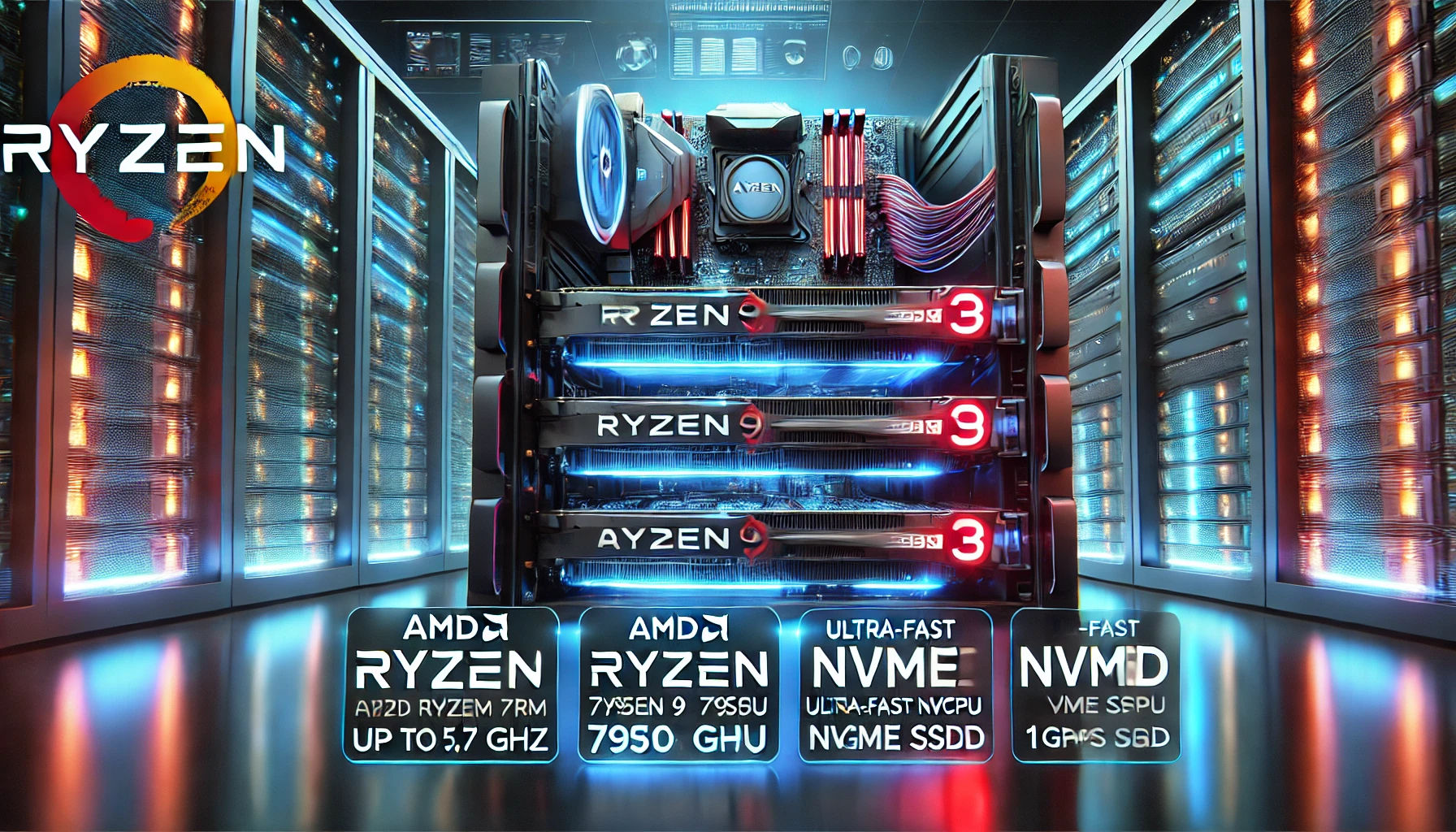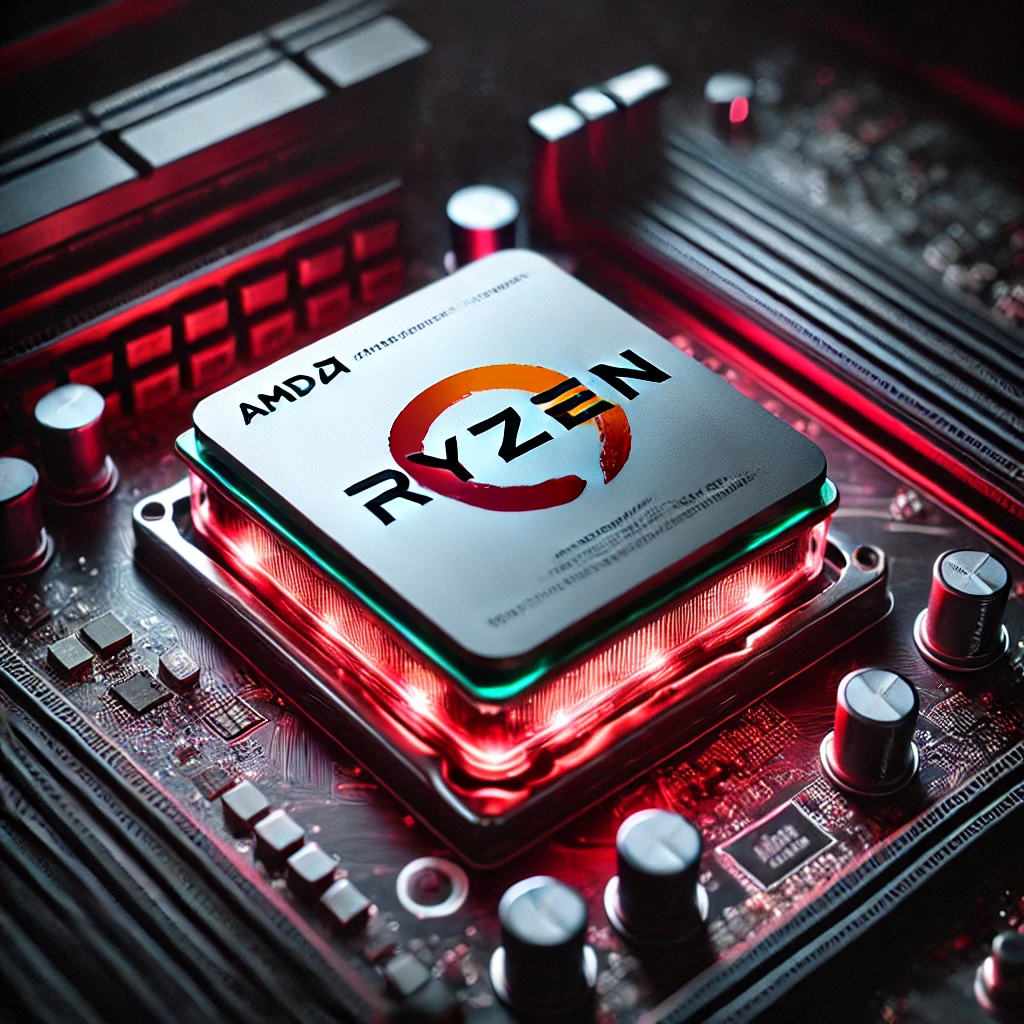Benefits of Using a Ryzen 7950X3D VPS vs Xeon vs EPYC
To comprehensively compare the benefits of using a Ryzen 7950X3D VPS versus Intel Xeon and AMD EPYC, we need to evaluate the performance, efficiency, cost-effectiveness, and use-case suitability of each processor. Below is a detailed step-by-step analysis.
Step 1: Understanding the Processors
Ryzen 7950X3D
- Architecture: Zen 4 with 3D V-Cache technology.
- Cores/Threads: 16 cores / 32 threads.
- Base Clock Speed: 4.2 GHz.
- Boost Clock Speed: Up to 5.7 GHz.
- Cache: Massive L3 cache (96 MB).
- TDP: Configurable TDP up to 170W.
- Key Features:
- Exceptional single-threaded performance due to high clock speeds.
- Enhanced multi-threaded performance with additional L3 cache for data-intensive workloads.
- Optimized for gaming, databases, and web hosting requiring low latency.
Intel Xeon
- Typically used in server environments; models vary widely:
- Example: Intel Xeon E5-2699 v4 (Broadwell architecture).
- Cores/Threads: Up to 22 cores / 44 threads.
- Base Clock Speed: ~2.2 GHz (varies by model).
- Boost Clock Speed: ~3.6 GHz (varies by model).
- Cache: Smaller L3 cache compared to Ryzen or EPYC (~55 MB on some models).
- TDP: Lower power consumption (~145W for some models).
AMD EPYC
- Designed specifically for enterprise-grade servers:
- Example: AMD EPYC 7443P (Zen 3 architecture).
- Cores/Threads: Up to 24 cores / 48 threads.
- Base Clock Speed: ~2.85 GHz.
- Boost Clock Speed: ~4.0 GHz.
- Cache: Large L3 cache (~128 MB on some models).
- TDP: Higher power consumption (~225W for some models).
Step 2: Performance Comparison
Single-Core Performance
The Ryzen 7950X3D outshines both Xeon and EPYC in single-core performance due to its higher clock speeds and advanced Zen 4 architecture. This makes it ideal for applications like WordPress hosting, PHP/MySQL workloads, and game servers where single-threaded tasks dominate.
Multi-Core Performance
While AMD EPYC processors generally have more cores than Ryzen or Xeon, the Ryzen’s combination of high core count (16) and superior per-core performance gives it an edge in many real-world scenarios such as virtualization or parallelized workloads. However, if extreme multi-core scalability is required (e.g., large-scale virtualization), EPYC may be better suited.
Cache Utilization
The Ryzen’s innovative use of 96 MB of L3 cache through its “3D V-Cache” technology provides significant advantages in latency-sensitive tasks like database hosting or gaming servers. In contrast:
- Intel Xeon has smaller caches that can bottleneck certain workloads requiring frequent memory access.
- AMD EPYC offers larger caches than Xeon but lacks the specialized optimizations found in Ryzen’s V-cache.
Step 3: Efficiency & Power Consumption
The Ryzen platform is highly efficient:
- It delivers better performance-per-watt compared to older Intel Xeons like the E5 series, which are based on older architectures with higher power draw relative to their output.
- While AMD EPYC processors are also efficient at scale, they consume more power due to their focus on enterprise-level workloads with higher core counts.
For VPS providers looking for energy-efficient solutions without sacrificing performance, the Ryzen platform offers an excellent balance between power consumption and computational output.
Step 4: Cost Effectiveness
- The Ryzen platform provides exceptional value for money when considering its price-to-performance ratio:
- It often replaces multiple older-generation dual-socket Xeon setups with a single processor while delivering superior speed and efficiency1.
- Compared to AMD EPYC processors designed for enterprise use cases, the Ryzen is more affordable while still offering comparable or better performance in many scenarios.
- Intel Xeons tend to be less cost-effective due to their lower per-core performance and outdated architectures in many commonly deployed models like the E5 series2.
Step 5: Use Case Suitability
Best Use Cases for Each Processor:
- Ryzen 7950X3D VPS:
- Ideal for shared web hosting platforms running PHP/MySQL-based websites like WordPress or Magento due to its high single-threaded speed1.
- Excellent choice for game servers where low latency is critical (e.g., Minecraft hosting).
- Suitable for small-to-medium-scale virtualization environments where both single-threaded and multi-threaded tasks coexist.
- Intel Xeon VPS:
- Best suited for legacy systems or applications that require compatibility with older software stacks2.
- Limited scalability compared to modern CPUs but still viable for basic web hosting or light virtualization tasks.
- AMD EPYC VPS:
Final Answer
The Ryzen 7950X3D VPS offers superior single-threaded performance, enhanced multi-threading capabilities via its innovative “3D V-cache,” excellent energy efficiency, and cost-effectiveness compared to both Intel Xeon and AMD EPYC processors. It is particularly well-suited for web hosting platforms, game servers requiring low latency, and small-to-medium-scale virtualization environments where both speed and affordability are priorities. However, if extreme scalability or enterprise-grade features are needed (e.g., massive core counts or extensive PCIe lanes), AMD EPYC remains a better option over both Ryzen and Xeon systems.



